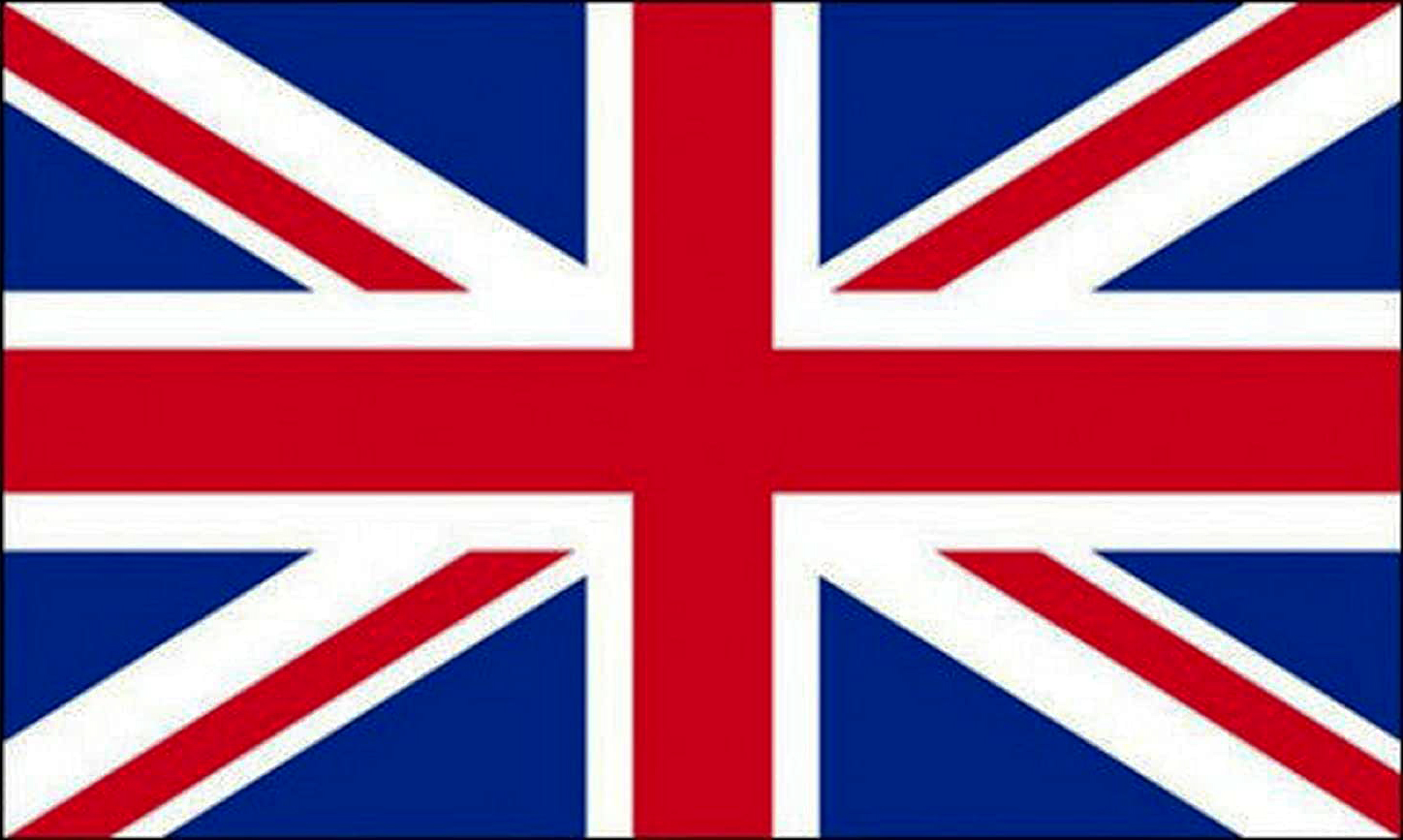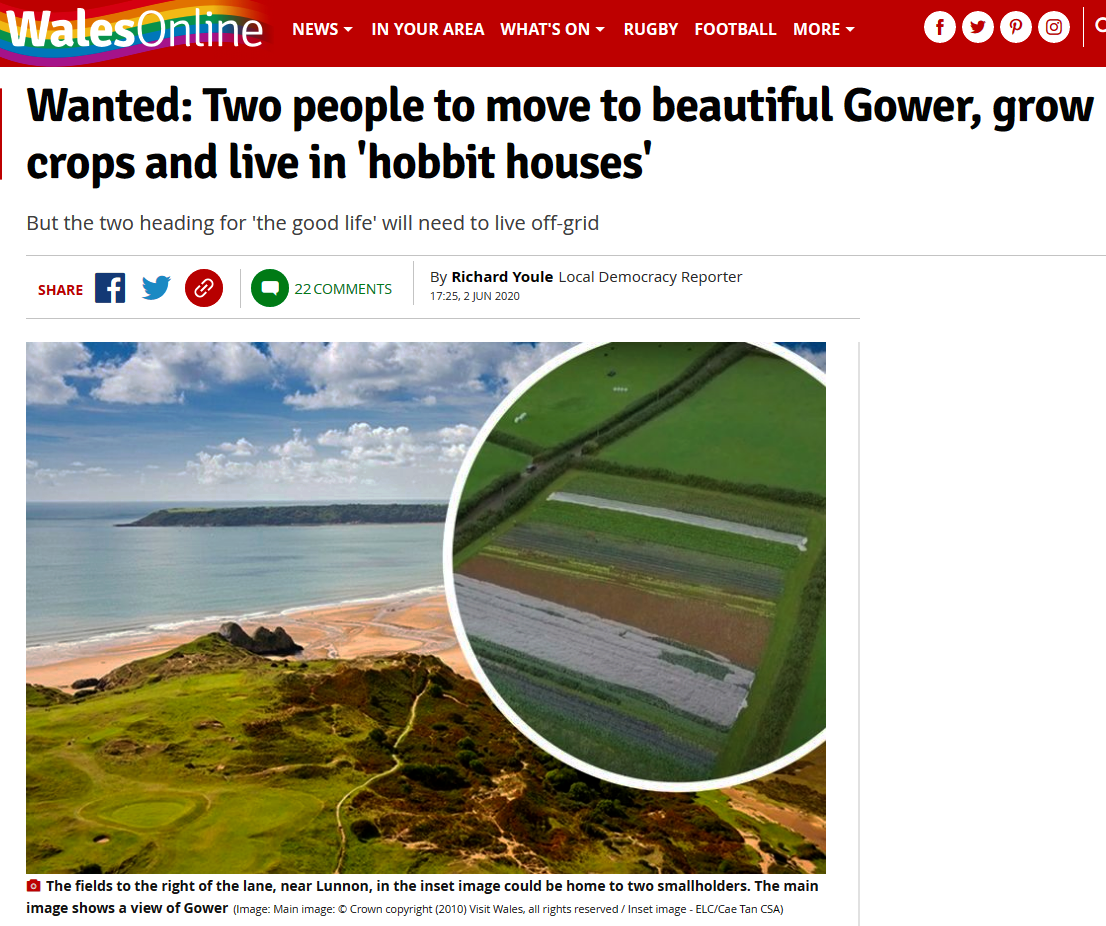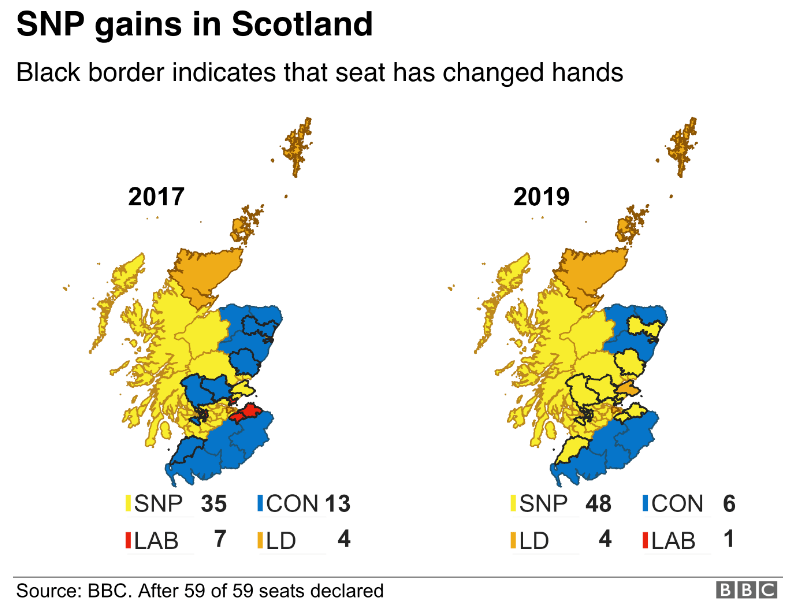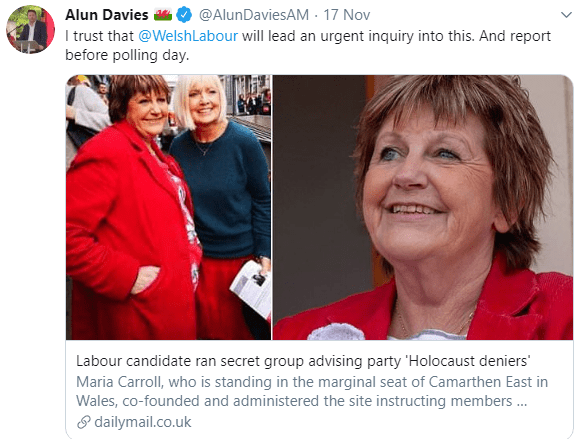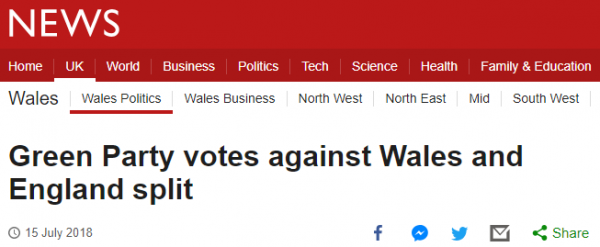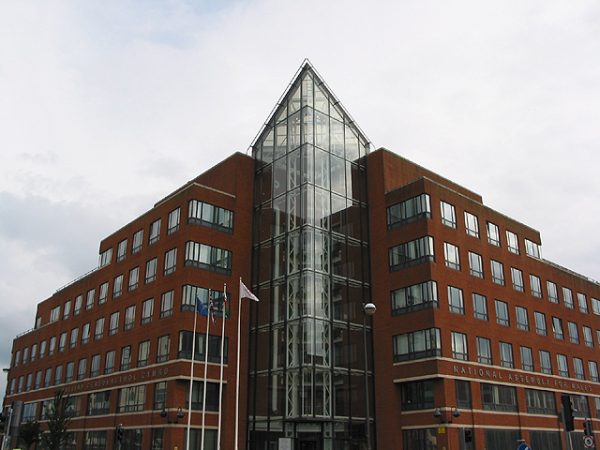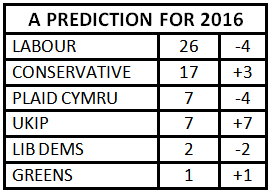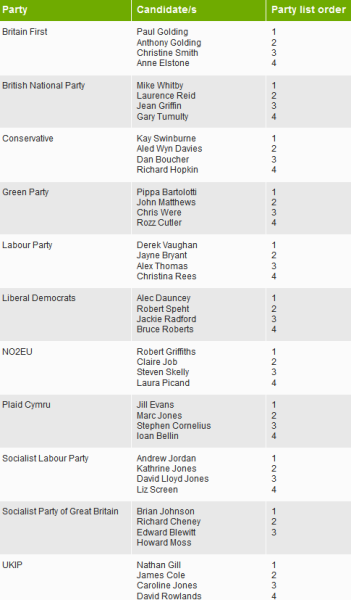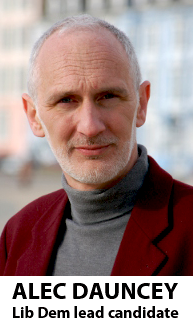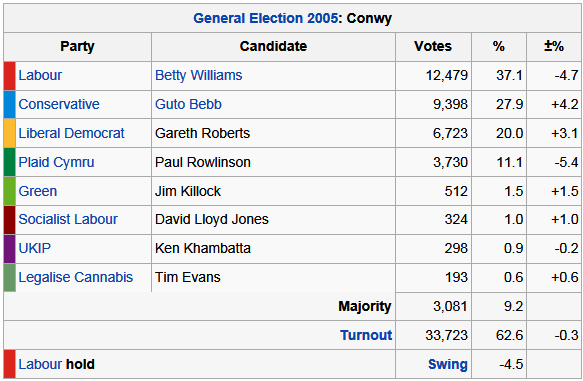PLEASE APPRECIATE THAT I GET SENT MORE INFORMATION AND LEADS THAN I CAN USE. I TRY TO RESPOND TO EVERYONE WHO CONTACTS ME BUT I CANNOT POSSIBLY USE EVERY BIT OF INFORMATION I’M SENT. DIOLCH YN FAWR
♦
![]() The next elections for the Welsh Parliament are just over six months away; so this week I’m taking a break from crooks, money-launderers, con men, enviroshysters, third sector leeches to focus on politicians.
The next elections for the Welsh Parliament are just over six months away; so this week I’m taking a break from crooks, money-launderers, con men, enviroshysters, third sector leeches to focus on politicians.
Reading that, the cynics among you will say, “So no great change there, then, Jac!”.
How dare you be so disrespectful of our tribunes! Go stand in the corner!
♦
THE 2016 RESULT
Let’s start by reminding ourselves of the overall result from the previous election in 2016.
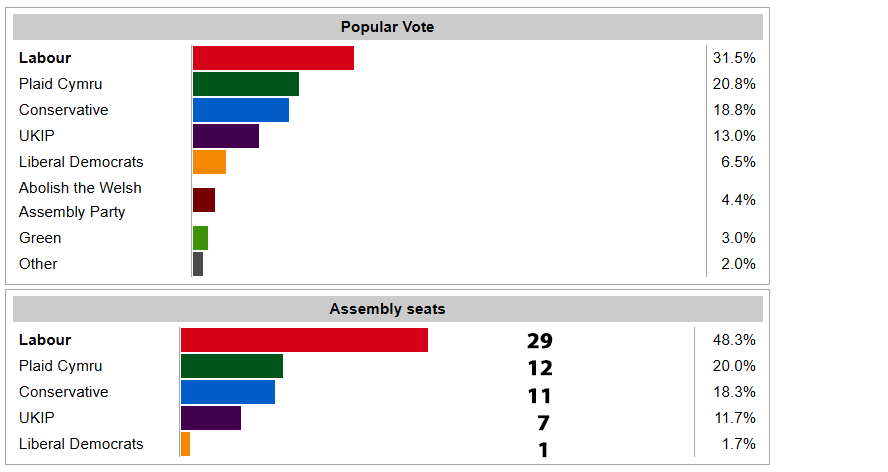
The first thing you might notice is that despite these elections being organised under a system of proportional representation the result, certainly for Labour, the biggest party, gives an outcome not a lot different to first past the post.
You’ll also see that the main challengers get seats roughly in line with their share of the vote, with the smaller parties generally losing out. It’s a system designed to protect the Labour-dominated status quo in Wales, while also stifling ‘insurgent’ parties.
This system has worked to perfection in Wales because the Conservatives are unlikely to ever gain a majority of seats. And when Labour fails to get a majority then Plaid Cymru or the Liberal Democrats will always be there to help.
After the 2016 election Labour went into coalition with the sole Liberal Democrat AM. Which meant that parties with a total of 38% of the vote were able to form an administration.
Is this really how PR is supposed to work?
♦
THE LABOUR PARTY
At the risk of sounding uncharitable, the great thing the Labour Party has had going for it is . . . not being the Conservative Party. The advertising campaigns, the policy drafting, the tub-thumping and the sloganising could all have been ignored in favour of the simple message – ‘Vote for us, cos we’re not the Tories’.
And it’s worked, for almost a century.
In England, the decline of traditional industries, and their associated trade unions, have weakened the Labour Party. Labour in Scotland suffered the same problem, exacerbated by the rise of the Scottish National Party to the point where Labour is hanging on for dear life, with just one Westminster MP left.
In Wales, Labour has fared better because we’ve been spared the corrupting influence of prosperity, and also because there is no equivalent of the SNP. Of course, Plaid Cymru likes to view itself as the Welsh SNP but the SNP set out to destroy the Labour Party in Scotland whereas Plaid Cymru seeks to keep its Welsh branch alive and in power.
How Labour will do next May depends to a considerable extent on perceptions of the Conservative government in London. For while Scotland has a vigorous national media allowing elections to be influenced by Scottish issues, the absence of a Welsh media worthy of the name means that here we tend see Englandandwales elections.
The exception being perhaps areas with high numbers of Welsh speakers who are less reliant on news from London.
On issues of the day, there is a general and widespread belief that the self-styled ‘Welsh Government’ has handled the Covid-19 pandemic better than Johnson, Hancock, Jenrick and the rest of the gang up in London.
But then, being seen as less incompetent than that crew is no great achievement.
When we address purely Welsh issues, it’s difficult to think of anything Labour has to crow about. For Wales continues to fall behind other countries in areas like wealth, health, housing and education.
Cardiff seems to be prospering but away from the Lesser Wen the country can be divided into post-industrial areas experiencing managed decline and rural areas undergoing engineered population change from Welsh to English.
Labour leader, Mark Drakeford, is less oleaginous than his predecessor, Carwyn Jones, but still a difficult man to like. Despite the Brownie points gained for Covid-19 there remain plenty of bear traps for him to negotiate between here and next May.
By any criteria one cares to apply, Labour has been a failure since 2016. Labour has failed Wales since the dawn of devolution in 1999. But for the reasons I’ve given, Labour will still emerge as the largest single party, with around 30% of the vote.
But well short of a majority of seats.
If nothing else, such a result should increase calls for more Senedd Members and a system of true proportional representation.
♦
THE CONSERVATIVE AND UNIONIST PARTY (CUP)
The last few years have been a series of peaks and troughs for the CUP, with Brexit almost tearing the party apart under Theresa May. Things took a turn for the better when Boris Johnson became party leader and won a famous victory in December . . . since when it’s been downhill again.
In last December’s election the Tories won a number of seats in the north, most notably, Wrexham, held by Labour since 1931. But the overall vote in Wales only increased by 2.5%. The real story was that Jeremy Corbyn’s Labour Party saw its Welsh vote go down by 8%.
Things have not gone well for the CUP since that December election for all sorts of reasons. Such as a number of the new intake being pretty odious specimens.
The new MP for Ynys Môn, Virginia Crosby, has appeared on this blog a number of times, usually defending her colleague and MP for Rossendale and Darwen, Jake Berry. Berry owns properties around Rhoscolyn and earlier this year people were asking if he was breaking lockdown restrictions to travel between his Welsh properties, his London home, and his constituency.
Then Delyn MP Rob Roberts got into trouble for asking young staffers to “fool around with him”. While Wrexham new girl, Sarah Atherton, wondered why the military weren’t dealing with the refugee/migrant boats crossing from France.
While old favourites like Alun Cairns, the MP for the Vale of Glamorgan, continue to amaze with their talent for finding little sidelines to supplement their meagre incomes.
The situation does not look like improving for the Tories, for two main reasons.
Let’s look first at Covid-19. As I said in the previous section, the Conservative government in London has had a disastrous pandemic: incompetence, lies, contracts to cronies, it’s all there, and this will be remembered next May.
As if that wasn’t bad enough, the Tories seem determined to alienate even more people by insisting that the ‘Welsh Government’ is being anti-English when – for perhaps the first time ever – it prioritises the interests of Wales.
That’s certainly what was said by Secretary of State for Wales, Simon Hart, and Alun Cairns. Which makes them either complete bell-ends or calculating politicians.
I believe it’s the latter, because in spouting this nonsense, the Tories are playing to a particular gallery. I’m thinking now of the anti-Welsh, gammony element that might otherwise be seduced by the growing number of splinter group parties on the BritNat fringe. (I’ll come to them later.)
The other problem of their own making is, again, Brexit. Of course Wales voted for Brexit, but I’m sure very few of us voted for privatising the NHS, chlorinated chicken, and undermining the Welsh farming industry. I certainly didn’t.
But it’s now become clear that a No Deal Brexit was always the favoured option for the CUP leadership in London. Which will mean the City of London remains at the centre of the biggest money-laundering network in the world; the NHS is opened up to US Big Pharma; and we have to get used to food products from the USA, where standards in both hygiene and animal welfare are more ‘relaxed’.
All the Welsh CUP MPs voted for this deal. Which is not clever for people representing constituencies with large numbers of farmers . . . and their extended families . . . and contractors to the industry, and so many others who rely to a greater or lesser degree on agriculture for their livelihoods.
There will be a price to pay next May for the coronavirus cock-ups and the shafting of our farmers. And while the Tories in Corruption Bay weren’t responsible, it’ll be some of them who’ll pay the price.
Other factors working against the Conservatives will be the Englandandwales media/election paradigm and the Vera Lynn Fan Clubs competing for regional votes.
For all these reasons I expect the CUP representation in the Welsh Parliament to fall.
♦
PLAID CYMRU THE PARTY OF WALES
Although Plaid Cymru won 12 seats in 2016 the party is now down to 10. Lord Elis Thomas, the constituency member for Dwyfor Meirionnydd, left to become a Labour-supporting Independent; and Neil McEvoy, the regional AM for South Wales Central, left to sit as an Independent before forming the Welsh National Party (WNP).
A further change since 2016 is that Plaid Cymru also has a new leader in Adam Price. Perhaps the best thing that can be said about him is that he’s not former leader, Leanne Wood.
For most Welsh voters Plaid Cymru is the party of Welsh independence, but as I’ve argued, Plaid Cymru is a party that sought more autonomy for Wales, more funding for Wales, and the creation of a new class of politicians and administrators made up of . . . well, the kind of people who populate the upper echelons of Plaid Cymru.
This was to be a system that created a new class that Djilas would have recognised enjoying prestige and influence without the responsibility of having to fund it. Devolution, with a bit more power, many more sinecures, and lots more money, is the end of the line.
Plaid Cymru was always Cymru Fydd resurrected, not a Welsh Sinn Féin. Until, that is, it moved to the left in the 1980s and really screwed itself up. Enjoying only a brief period of coherence under the leadership of Dafydd Wigley and the first Assembly elections in 1999.
Today we again see a schizophrenic party where Welsh-speaking social conservatives from the rural heartlands mix uncomfortably with some real oddballs and a few with views that should have denied them membership.
Plaid Cymru is today one of those confused leftist parties that is vehemently opposed to intolerance . . . except when it’s those it approves of being intolerant.
As a leftist party Plaid Cymru believes that, thanks to the capitalist system, we’re either going to fry due to global warming, or else we’re going to drown from rising sea levels, so Wales must play its part in trying to avert these outcomes.
In practice, that means supporting wind turbines that create no jobs and simply exploit Wales. Where profits flow to a City hedge fund, or a multinational, or a state-owned energy company from Scandinavia.
Except on issues that are largely irrelevant to Wales – where Plaid Cymru can play gesture politics – the party comes across as weak and indecisive. Take holiday homes. Plaid talks the talk but it won’t walk the walk.
At present Welsh local authorities can impose a council tax surcharge on holiday homes up to 100%. The only council that levies the 100% is Labour-controlled Swansea. (And despite what you might think, there are many holiday homes on the waterfront, in Mumbles, and of course around Gower.)
Independent-run Powys recently voted to impose a surcharge of 75%.
But Gwynedd, where Plaid Cymru is in control, imposes only a 50% surcharge. It’s a similar picture in Ceredigion and Carmarthenshire.
On independence, Plaid Cymru has been outflanked and overtaken by Yes Cymru. While on the party political front there are two new challengers in the form of Gwlad and the Welsh National Party (WNP). Both are unequivocal about prioritising Welsh interests, and are fully committed to achieving independence.
So you really have to wonder what Plaid Cymru stands for nowadays, and where it’s going. That’s certainly what Welsh voters will be doing in May. Many will conclude that Plaid Cymru has hit the buffers.
Which certainly seems to be the case.
For while opinion polls tell us that more and more people are prepared to consider independence, those same polls show little or no increase in support for Plaid Cymru. Recent polls show 51% of Labour voters prepared to consider independence, but only 71% of Plaid Cymru voters!
What’s going wrong for Plaid Cymru?
In a nutshell, Plaid Cymru believes that the only acceptable vision of independence must be well to the left of centre, pro EU, in favour of open borders, anti Trump, and dragging a whole baggage train of ishoo-of-the-month idiocies that turn off most voters.
Dogmatic to the point of being unelectable.
Plaid Cymru always failed to engage with the urban, anglophone population. After the disappointment of Brexit, the success of the Brexit Party (winning the May 2019 EU elections in Wales and the UK), and BoJo’s victory last December, many in Plaid Cymru – like the US Democrats – have given up trying to win over stupid, racist, poor whites.
They find it preferable to retreat into their cocoons of progressive self-righteousness in the echo chamber of social media.
Which is why I believe Plaid Cymru will lose Ceredigion and also end up with fewer Members from the regional lists.
♦
LIBERAL DEMOCRATS
There’s a temptation to be very unkind in this section . . . but it’s not in my nature to put the boot in when somebody’s down. And boy! are the Liberal Democrats down.
Down to a single Member, Kirsty Williams, the constituency MS for Brecon and Radnorshire. After the debacle of 2016 Ms Williams threw in her lot with Labour and became Minister for Education. You probably haven’t noticed.
It’s an amazing decline for the party of David Lloyd George, but entirely predictable when we consider the quality of leaders and representatives in recent years at both Welsh and UK level. I’m not sure if Ms Williams holds group meetings with herself but I’m sure she will have thought the same thing many a time.
And yet, despite currently being down to a solitary representative, the Liberal Democrats could be the big winners in May next year.
As I’ve suggested, the CUP has pissed off a lot of people, and most certainly a lot of farmers. Few will know that better than Kirsty Williams, a farmer’s wife.
Obviously, I’m not privy to what goes on at Welsh Liberal Democrat Party meetings (I can never find the telephone kiosk!) but I’m sure Kirsty Williams has hopes for the seats of Montgomeryshire to the north and Ceredigion to the west. (If the students in Aber’ and Lampeter have forgiven the Lib Dems for reneging on tuition fees.)
So I’m predicting that the Liberal Democrats could double, or even treble, their representation in May 2021. These are the three constituencies mentioned, and there might even be a regional list seat.
♦
VERA LYNN FAN CLUBS
This is where it gets tricky, because the landscape on the BritNat right is forever shifting. Hardly surprising when we look at the personalities involved, and realise how many of them are often described as ‘interesting’, or ‘eccentric’ (code for ‘absolute nutter’).
Back in 2016, the big winner among this section of the electorate was UKIP, with 13% of the vote and seven seats. The Abolish the Welsh Assembly Party did not stand constituency candidates and got just 4.4% of the regional vote (which was still more than the share won by the Green Party of Englandandwales).
Since 2016 UKIP has had eight or nine UK leaders, numerous resignations, and in Corruption Bay is now reduced to the solitary – but dapper – form of Neil Hamilton. In fact, I’m not sure if Neil Hamilton isn’t the current party leader. Or was that last month?
Not so long ago the Abolish lot was the fringe of a fringe, but now it boasts two Members of the Senedd, Gareth Bennett and Mark Reckless. Though you’ve gotta be pretty desperate to boast about those two.
Others who were returned under the banner of British exceptionalism were Nathan Gill, Michelle Brown, David Rowlands and Caroline Jones. Following his resignation in 2018 Gill was replaced by Mandy Jones. Michelle Brown now sits as an Independent.
I would have loved to have been a fly on the wall at those UKIP meetings because by comparison ferrets in a sack are models of harmony and co-existence.
The most recent development is that Rowlands and the Jones women have formed a new group, the Independent Alliance for Reform. And if that name doesn’t stir something deep inside you – other than wind – then you are beyond hope.
It is obviously designed to be interchangeable with or to complement Aux barricades!
And all the while, in the wings, observing, is Nigel Farage. Will his Reform Party put in a late appearance, or will it be the promised relaunch of the Brexit Party? Though with Brexit almost done what would be the platform?
For let us remember that the Assembly elections of May 2016 were held just ahead of the EU referendum and were almost overshadowed by it. This propinquity benefited Ukip.
One thing’s for sure, if all the parties we’ve looked at in this section fight all the seats then we’ll be royally entertained by the stars they’ll recruit from Wetherspoons and other squelchy underfoot salons. A goodly number of whom will have to withdraw before the election after saying or doing something really stupid.
The BritNat right has no hope of a constituency seat, so hopes rest on the regional lists. Which means that a lot will depend on whether they fight each other or come to some arrangement.
I suspect there are still enough “Brexit means Brexit” types out there to win 3 seats.
♦
THE SERIOUS ABOUT WALES PARTIES
Looking around Wales and seeing the mess this country is in is painful enough, but when you realise that none of the existing parties offers any hope of meaningful change, then new parties will be formed.
And that’s exactly what’s happened; and why we have Gwlad and the WNP.
I am a member of Gwlad and played a small part in its creation, but it was easy for me to withdraw to the blogosphere because the party is in such capable hands.
I like to think that Gwlad combines patriotism with pragmatism. For example, in believing that relying on handouts from London, as Labour and Plaid Cymru prefer, only perpetuates the misconception that Wales could never stand on her own two feet economically.
There are radical yet practical proposals across the board. We’ve already touched on Plaid Cymru’s fear of upsetting second home owners – a number in their own ranks – with meaningful levels of council tax; well, Gwlad does not hesitate to demand a 500% council tax surcharge.
It’s all here in the Manifesto for 2021.
Predictably, the criticism levelled against Gwlad by Plaid Cymru is that we shall “split the nationalist vote”. This is nonsense, because Plaid Cymru has already split – or certainly, limited – the nationalist vote by its inflexible and off-putting socialism.
This is borne out in recent elections and in even more so in recent opinion polls.
What Gwlad will do is reach out to those who want, or would be prepared to consider, independence, but could never vote for a hard-line socialist party also lumbered with the tag of still being a party only for Welsh speakers.
Gwlad could come through a crowded field to win a constituency seat and should certainly collect 3 or 4 regional list seats.
∼
Of course, I’ve met Neil McEvoy a few times and we exchange the occasional e-mail, Wales is a small country after all. But I really don’t know much about his new party beyond what I read in the media.
Though I do know a few others involved with the WNP.
Over the years I’ve sunk a few pints with Councillor Keith Parry . . . and I’m still haunted by a car journey one very rainy night as I tried to concentrate on the road ahead while my mate and Keith’s Jewish wife argued over the Israeli-Palestinian conundrum.
I feared it was all going to end in a fight and a fireball car crash. Phew!
Many observers try to say that Neil McEvoy only took the course he did in forming the WNP because he was effectively thrown out of Plaid Cymru. They couldn’t be more wrong.
Neil has been in politics a long time, and he knows what’s wrong with Wales. On one level it’s London’s political, economic and cultural stranglehold, but on the local level it’s the Labour Party and Plaid Cymru.
Labour holds power on local councils and in the Senedd . . . simply to be in power; to stop someone else getting the salaries and the expenses, attending the bun-fights and the jollies. Labour has little intention – and no real incentive – to improve the lives of our people because for a century it has capitalised on Wales’ deprivation.
Plaid Cymru, as I’ve said, is a party of gestures and abstractions. It is the twenty-first century political equivalent of those medieval divines who would argue over how many angels could dance on the head of a pin.
But actually doing anything? Forget it!
But if one of his constituents persuades him they’re getting a raw deal, then Neil McEvoy will take up the case and demand something be done about it. And he sometimes ruffles feathers doing it. But if kids are sharing a bedroom with rats, or there’s water rippling down the kitchen wall . . .
Neil McEvoy is a do-er, a man who believes in the direct approach; and that makes the anguished attitudinisers of Plaid Cymru very nervous. And never more so than when he confronts the Labour Party.
On two major issues, the ‘nuclear mud’ being dumped off Cardiff, and the forged signatures on cladding certificates, Plaid Cymru has behaved abominably. None worse than Llywydd Elin Jones. But she couldn’t have behaved as she did without the backing of Labour and Plaid Cymru.
Sticking it to the man may outrage the sensitive flowers of Plaid Cymru but it goes down well with real people, on the streets of Cardiff, and elsewhere in Wales. People want their problems solved, they do not want to be patronised, or taken for granted, by an aloof and self-serving political class.
The big test will come in the constituency seat of Cardiff West, where McEvoy will be standing against First Minister Drakeford. Plaid Cymru will of course be splitting the nationalist vote in the hope of securing victory for Mark Drakeford.
Neil McEvoy’s street cred and his sheer hard work might win Cardiff West next May, plus a couple of regional list seats.
∼
My very personal belief is that Gwlad and the WNP should not get in each other’s way next May. Neither has the strength yet to fight a full national election so it’s in their interests, and more importantly, it’s in Wales’s interests, for there to be some kind of deal.
♦
FINAL THOUGHTS
I obviously can’t account for all those who might be standing next May, there’s bound to be a wild card or two. But what you’ve just read is how I see it panning out.
Other factors will I’m sure influence voters. Perhaps the UK government’s Internal Markets Bill; supposedly about ‘repatriating’ powers from the EU but which, in reality, gives BoJo’s gang the power to trample all over devolution.
Perhaps it will even be used to challenge the 1707 Act of Union.
More specific to Wales is a growing awareness of and dislike for the chumminess of Cardiff Bay. The air of cronyism and unaccountability exemplified by Labour and Plaid Cymru refusing to bring in a register of lobbyists.
The problem in this area is obvious, but there are always excuses for doing nothing. This is because Labour and Plaid Cymru are too close to those who might be held to account by such legislation.
Another issue that might influence some voters to take a punt on a new party is the widespread perception that Cardiff gets everything. Which doesn’t change when an MS goes to Cardiff promising to speak up for his area . . . only to be sucked into the swamp that is Corruption Bay.
But perhaps we should remember Harold Macmillan’s response when asked what was most likely to influence or derail political plans. Supermac is said to have replied: “Events, dear boy, events.”
In other words, that which cannot be foreseen. Six months is a very long time in politics.
♦ end ♦





